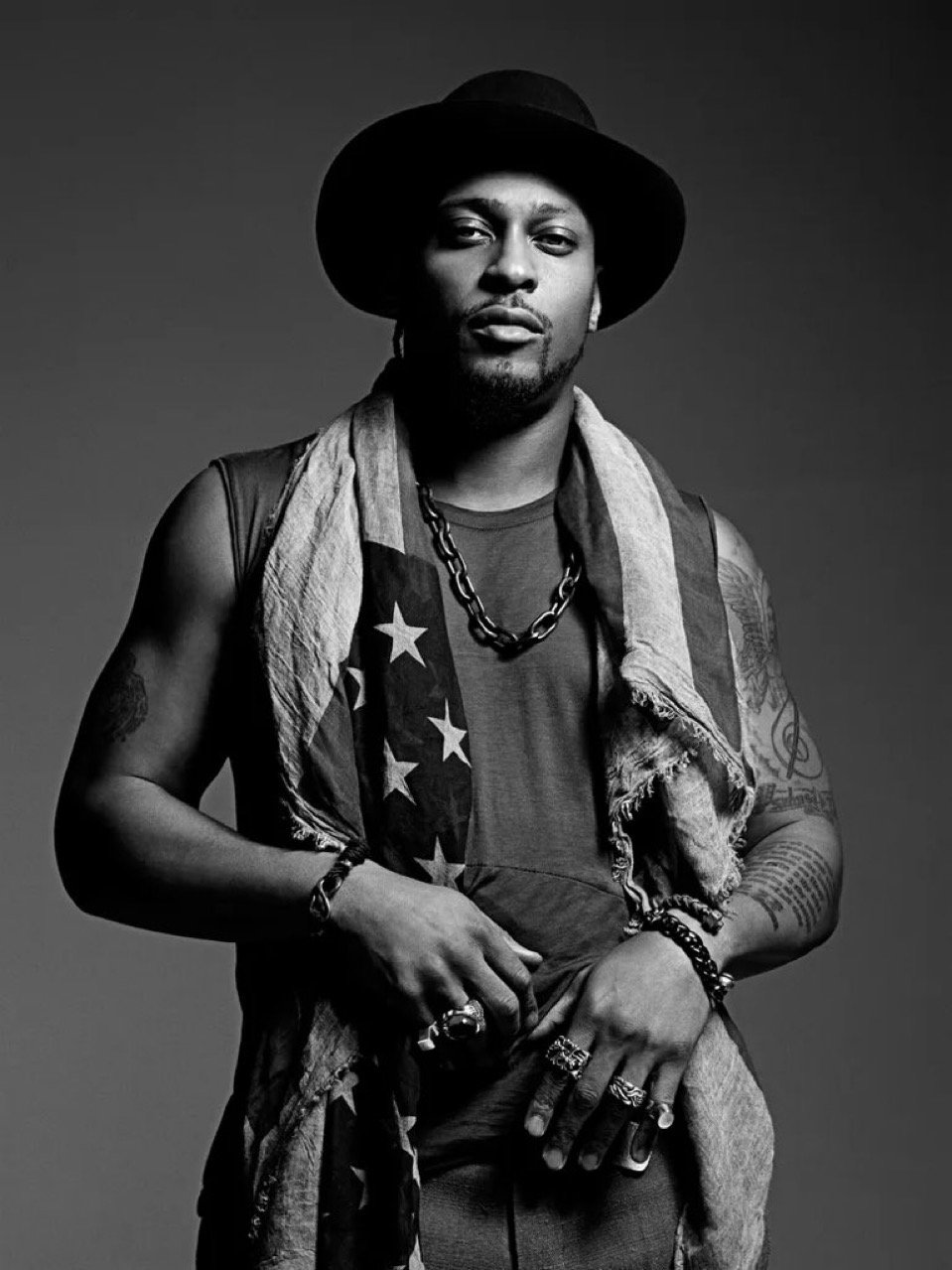Soul Legend D’Angelo, 51, Dies After Private Battle With Pancreatic Cancer
FEATURED ARTICLESNEWS & HEADLINES
10/14/20254 min read


Soul Legend D’Angelo, 51, Dies After Private Battle With Pancreatic Cancer
By Maurice Woodson
Michael “D’Angelo” Archer — the voice and spirit behind some of the most soulful, intimate R&B of the past three decades — has passed away at the age of 51 after a private battle with pancreatic cancer, his family confirmed on October 14, 2025.
His death comes as a shock to the music world, as D’Angelo maintained a relatively low public profile in recent years. The news invites us to reflect not only on his artistic legacy but on the very first time I had the privilege to speak with him — back in 1995, shortly before his debut album Brown Sugar changed the trajectory of R&B.
Meeting D’Angelo, 1995
I first interviewed D’Angelo in the spring of 1995, months before Brown Sugar was released. He was just 21 — young, earnest, and quietly ambitious. At the time, EMI had high hopes for his project, but many in the industry wondered whether his soulful, organic style would find an audience.
Over brunch at the Viceroy Café in Chelsea, he told me:
“What I make next week should sound better than what I did today.”
He spoke softly but with conviction. He wanted his work to evolve, to build — not to rest on a single success. He shied from hyperbole, always returning to the craft itself: lyrics, melody, instrumentation.
In that same interview, he hinted at how careful he was with production, resisting overpolished trends in favor of rawness and emotional sincerity. That ethos would come to define Brown Sugar’s appeal.
Looking back now, that early conversation captures the essence of D’Angelo’s musical soul: always reaching, always listening, always grounded in a deep respect for sound and space.
Brown Sugar and the Birth of Neo-Soul
Brown Sugar dropped on July 3, 1995. It quickly became more than a debut — it was the opening salvo of a movement. The album’s blend of live instrumentation, gospel-tinged soul, jazz-hued chords, and understated hip-hop influence distinguished it from the typical R&B fare of the mid-1990s.
Though many of the demos were laid down in his Richmond bedroom on a 4-track system, D’Angelo’s control over instrumentation and vocals was quietly revolutionary. He co-produced and layered much of the album himself, while working with key collaborators like Bob Power, Ali Shaheed Muhammad, and Raphael Saadiq.
One of the more compelling origin stories involves how the title track “Brown Sugar” emerged almost by accident: during a session with Ali Shaheed Muhammad, their studio equipment crashed, and in the ensuing downtime, D’Angelo began playing chords that became the foundation of the song. Despite initial skepticism from label executives — who found it too rough around the edges — the track made the cut and became a signature.
Brown Sugar yielded several singles — “Brown Sugar,” “Lady,” “Cruisin’” (a cover of Smokey Robinson), and “Me and Those Dreamin’ Eyes of Mine” — and earned four Grammy nominations. The album’s impact was more than commercial — it helped catalyze the neo-soul movement, influencing artists like Maxwell, Erykah Badu, Lauryn Hill, Jill Scott, and beyond.
In that early interview, D’Angelo spoke of wanting to stay true to the emotional core of soul, resisting the glossy veneer dominating mainstream R&B. In hindsight, that adherence to authenticity would become his signature.
Triumphs, Struggles, and Return
After Brown Sugar, D’Angelo followed up with Voodoo in 2000, which debuted at No. 1 on the Billboard 200 and won two Grammys (including Best R&B Album) The single “Untitled (How Does It Feel)” became iconic, especially due to its minimalist, shirtless video which both celebrated and complicated his status as a sex symbol.
Yet as his stardom rose, he also faced pressures — over image, over expectations, over the tension between being an artist and a commodity. These stresses, along with personal challenges, led to extended hiatuses.
In 2014, he returned with Black Messiah, a politically charged, spiritually rich record that earned two Grammys and reaffirmed his place as a transformative artist. He rarely toured during that period, preferring to let the music speak.
In recent years, he was reportedly working on new projects with long-time collaborator Raphael Saadiq, though those remain unfinished at his passing.
Battle With Pancreatic Cancer
His family has confirmed that D’Angelo succumbed to pancreatic cancer, after keeping his diagnosis largely private. Reports suggest he had been under medical care for several months, though he chose to shield much of the struggle from public view. The news of his passing stunned fans and fellow artists alike, and tributes have poured in across social media and the music world.
He is survived by his three children.
Legacy
D’Angelo leaves behind a body of work that is sparse but mighty — just three full-length studio albums over 30 years, yet each resonant with depth, heart, and innovation.
He never shied from vulnerability. He never faked maturity. He nurtured a rare balance of sensuality and spirituality — of tension and release — in his music. In that way, his influence goes beyond genre: it’s emotional, it’s interior.
Looking back to that first interview in 1995, I remember a young man who believed deeply in music as a vehicle of truth. He wanted to evolve. He wanted to grow. He refused to settle. Over the years, those quiet convictions turned into artistry that spoke across generations.
His passing is a loss not only to soul and R&B, but to anyone sensitive to what music can do: heal, stir, elevate. But he left behind a catalogue that will continue to whisper, teach, challenge — a testament to a life lived in service of song.
For more articles, news updates, as well as to read full issues of Black Zone Magazine visit: https://blackzonemagazine.com
